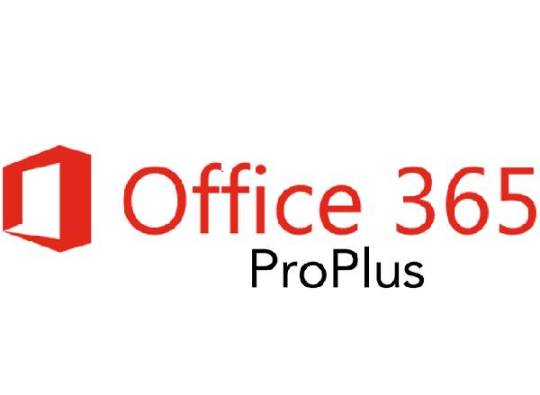#Microsoft 365 Products & Solutions
Explore tagged Tumblr posts
Text

Embrace the future of business management with Microsoft D365 Copilot! 🚀
Unlock the potential of your business with 𝐌𝐢𝐜𝐫𝐨𝐬𝐨𝐟𝐭 𝐃𝐲𝐧𝐚𝐦𝐢𝐜𝐬 𝟑𝟔𝟓 𝐂𝐨𝐩𝐢𝐥𝐨𝐭! Discover how this innovative solution empowers industries to streamline operations, enhance decision-making, and drive efficiency.
JRS Dynamics Info Solutions - Microsoft Solutions Partner, we’re excited to help you future-proof your business with cutting-edge technology.
🔗 𝐑𝐞𝐚𝐝 𝐭𝐡𝐞 𝐟��𝐥𝐥 𝐛𝐥𝐨𝐠 𝐭𝐨 𝐥𝐞𝐚𝐫𝐧 𝐦𝐨𝐫𝐞: https://jrsdynamics.com/microsoft-d365-copilot/
𝐄𝐦𝐚𝐢𝐥: [email protected] 𝐕𝐢𝐬𝐢𝐭: www.jrsdynamics.com
#Microsoft Copilot#Microsoft D365#Microsoft#Copilot#AI#Microsoft Dynamics 365#AI For Business#Future Ready#JRS Dynamics#JRS Solutions#Digital Transformation#Business Growth#Business Success#Business Management#Business Solutions#Business Transformation#Productivity#Automation#ERP#ERP Solutions#Dynamics 365#Microsoft Partner#Software Solutions
1 note
·
View note
Text
Comprehensive Support of Radiant Info Solutions for Microsoft Office 365 ProPlus
Learn about the comprehensive support provided by Radiant Info Solutions for Microsoft Office 365 ProPlus, ensuring smooth operations and maximum productivity.

#Microsoft Office 365 ProPlus support#Radiant Info Solutions#Office 365 subscription#technical support#productivity enhancement
0 notes
Text
Top 10 ‘Must Have’ Digital Tools for Businesses
Modern technology now exists within every area of business. Not only the IT department use digital tools to assist with their day-to-day tasks, all departments from HR to Finance rely on software to help them with their work. These tools have massively increased productivity within modern businesses, taking away manual processes and physical copies of data. This means staff are able to focus on the tasks that are really important. It also helps with security of data and data loss protections, as your data is held within secure platforms and is organised and backed up for safety. Our consultants have completed projects for some of the UKs largest companies and have noticed some must have digital tools for businesses used within most companies. These top 10 digital tools for businesses are very common in the big firms, but seen less within smaller organisations.
There are plenty of tools that are used in businesses these days and it seems like there is a new app released daily. However, there are some must have apps that are used within most modern organisations. As digital experts, we see all kinds of tools being used, here are the top 10 digital tools we see being used in most companies. We see these as the must have tools for businesses in 2023!
1. Travel Booking System
Booking corporate travel can often be a long drawn out process. First placing the booking through the travel company, printing receipts, multiple levels of approval, then reimbursement. With a digital travel booking system, you can do away with all that hassle and have everything automated through the system.
Get a custom travel booking system
2. Holiday Booking System
Recording absences and tracking holiday requests is something all businesses have to do. Allowing your staff to easily and securely book holidays for keeping your staff happy. A custom holiday booking system can give staff members an easily to use tool and enable you to easily keep track of the data .
Get a custom holiday booking system
3. Employee Directory
D you work for a large organisation? Or is your business growing? And your staff are finding it difficult to keep track of who is who. An employee directory can help you easily find staff members and their contact details. This helps with staff collaboration and keep your organisation connected, especially if you are a multinational company.
Get a custom employee directory tool
4. Timesheet Management Software
Loosing track of time spent on projects and not properly connecting the tasks within a project together can affect alignment within a team. The data tracked from the timesheet management tool can then be saved in a central database and visualised in easy to understand reporting dashboards.
Get a custom timesheet management tool
5. Employee Onboarding Tool
Getting users setup and onboarded hassle-free and quickly is very important for productivity. Starting at an new role can be a daunting time, not being able to find the systems, files or people you need can keep new starters in the dark for longer. This process can be completely automated, giving staff access to the data, people and workspaces they need instantly.
Employee onboarding tool
6. Process Management Systems
Doing away with manual tasks and completely automating your companies processes is one of the best ways a company can maximise productivity. Using automation within a business is also one of the biggest cost saving tips that we can offer, as it can significantly reduce the time people spend doing unnecessary tasks.
Get a custom process management system
7. Supplier Portal
Giving your vendors a portal that they are able to log into and manage their communications with you, can not only increase productivity, but can give your company a professional look for external suppliers. This can also give you one location to manage all your vendors, which for larger organisations can become very difficult to keep track of and manage.
Get a custom supplier portal
8. Asset Management System
IT often have to lend out many assets like laptops, mobiles and accessories. These assets can often be misplaced and lost, costing companies a fortune on misplaced products. An asset management system can keep track and automate the management of lending out devices and accessories.
Get a custom asset management system
9. IT Helpdesk System
In the past your IT team would have to manually manage the incidents and requests raised by other staff members. This can cause for requests to be forgotten, or a backlog of requests to pile up, resulting in bad management of requests. These days an IT helpdesk system can help you IT department organise, manage and sign-off their requests.
Get a custom IT helpdesk system
10. Microsoft 365
Microsoft 365 is a one-stop-shop for collaboration within a business. Apps like Outlook and Teams are used by end-users within most business, but people often do not realise the wide array of tools available as part of M365. Platforms like SharePoint and the Power Platform are often the backbone for the data held in most companies.
Find out how you can leverage M365
Bonus: Microsoft Viva
Find out more about Microsoft latest set of tools.
#business application#digital workplace#employee engagement#employee experience#internet#business#business growth#microsoft#microsoft 365#microsoft office#productivity#productivitytips#leadership#leadership skills#business strategy#business solutions#modern workplace#employee empowerment#collaboration
0 notes
Text
Facilitate higher workplace productivity by using MS Teams document management systems
Many factors affect workforce productivity. One of these is the ability to find the right documents, resources, and files at the right moment. This affects enterprise productivity, the pace of work, and employee productivity. It also allows employees to concentrate on more valuable activities like innovation, strategy, training, and skill enhancement. Research shows that employees are spending more time searching for critical documents in cluttered online document management systems than they are focusing on providing workplace value.
#enterprise productivity#modern workplace solutions#Microsoft Teams consulting#business productivity#digital transformation solutions#comprehensive business management#ppm partners#business management solution#dynamics 365 field service#business applications#business productivity solutions
0 notes
Text
Why Troop ToDo is the Best Free To-Do List App for Teams
In today’s fast-paced digital world, managing tasks efficiently is crucial. While traditional to-do list apps help organize tasks, modern users crave collaboration, social engagement, and interactive features. This demand has given rise to a new category of productivity tools: social and interactive to-do list apps. These applications allow users to share tasks, collaborate in real time, and engage with their teams or friends seamlessly.

Why You Need the Best To-Do App
Choosing the best to-do app is essential for staying productive and managing tasks efficiently. A great to-do list app should offer collaboration, integration, and an intuitive interface to help users get things done.
Popular Social and Interactive To-Do List Apps
Several apps cater to users looking for task management with social features. Some of the popular ones include:
Todoist – A powerful to-do list app with collaboration features, allowing teams to assign and track tasks.
Microsoft To Do – Integrated with Microsoft 365, it offers task-sharing features for better productivity.
Trello – Though primarily a project management tool, its boards and cards allow teams to collaborate easily.
Any.do – With shared lists and real-time reminders, it helps keep groups in sync.
Asana – Aimed at teams, Asana provides task assignments, status tracking, and collaboration tools.
While these apps provide excellent features, they often lack a seamless blend of social interactivity and task management in a single platform. This is where Troop ToDo shines.
Why Troop ToDo is Better Than Other Alternatives
Among the various options available, Troop ToDo stands out as the ultimate social and interactive to-do list app. It not only provides an intuitive interface for personal task management but also offers unique features that make it superior to its alternatives.
Seamless Collaboration: Unlike most task managers that focus on individual tasks, Troop ToDo is designed to enhance teamwork. Users can assign tasks, set deadlines, and track progress effortlessly.
Real-Time Communication: The integration with Troop Messenger allows team members to communicate instantly within the app, eliminating the need for external chat tools.
Customizable Workflows: Troop ToDo enables users to create customized workflows suited to their personal and professional needs.
Interactive Task Management: Unlike static to-do lists, Troop ToDo offers interactive task updates, notifications, and progress tracking in a highly engaging manner.
Secure and Reliable: With robust security measures, users can confidently manage their tasks without privacy concerns.
Best Free To-Do App: Troop ToDo offers a robust free version that includes essential task management features, making it an excellent choice for individuals and small teams.
Best To-Do App for Collaboration: Troop ToDo is designed with teams in mind, offering an all-in-one solution that streamlines communication and task management seamlessly.
The Ultimate To-Do Solution: Whether you need a simple to-do list or a powerful team collaboration tool, Troop ToDo is the perfect choice.
Best Free To-Do Option Available: Troop ToDo provides the best free to-do experience, allowing users to stay organized without any cost.
A To-Do App That Stands Out: If you're looking for the best to-do app, Troop ToDo delivers unmatched features and ease of use.
To-Do List That Enhances Productivity: Troop ToDo takes your task management to the next level, ensuring every to-do is completed efficiently.
Best Free To-Do for Teams: Troop ToDo is the best free to-do option available for teams looking for seamless collaboration and productivity.
Final Thoughts
If you are searching for the best free to-do app, Troop ToDo is the ideal choice. It not only helps you stay organized but also ensures seamless collaboration with your team. Unlike its alternatives, Troop ToDo integrates communication and task management in a single platform, making it the perfect productivity tool for both individuals and teams.
2 notes
·
View notes
Text
Boost Collaboration and Productivity with Microsoft Teams Premium and Copilot

Discover how Microsoft Teams is redefining teamwork with its powerful tools: Teams Premium and Teams Copilot. Both options are designed to enhance productivity and simplify daily tasks through AI-driven features like meeting recaps, advanced security, and workflow automation.
Looking to choose the best solution for your organization? Learn about the key differences between Teams Premium—ideal for secure, branded meetings—and Teams Copilot, which integrates seamlessly with Microsoft 365 for advanced AI assistance.
Explore the full guide to make the right decision for your team.
👉 Read a Full Blog : https://www.ecfdata.com/ultimate-showdown-teams-copilot-vs-teams-premium-features-compared/
#Teams Copilot#Teams Premium#Microsoft 365 Copilot#Artificial Intelligence#Microsoft Teams#managed it services#managed service provider#it services in las vegas#it consulting in las vegas#government managed services#managed it service provider
2 notes
·
View notes
Text
Small Business Must-Haves: The Best Tools for internal communication software
Team members can no longer rely on one-on-one conversations with coworkers in today's modernising workplace, and sending important files or sharing every little detail via email—which can take a lot of time because of its protocol—to accomplish these tasks. Selecting internal communication softwares can be the finest choice because it enhances time management, team productivity, and collaboration in addition to communication.
Little and microbusiness owners turn to social chat applications since they don't meet their needs and they believe work chat platforms are too expensive. Some were forced to use them due to an unforeseen pandemic disease. However, because of their subscription programs, some of the best products are able to provide excellent services at a low cost.
The following are some of the most effective communication tools for your business.
1. Troop Messenger

Troop Messenger is considered the best internal communication software, which can be used as a business messaging tool, work chat tool, and instant messaging tool for both office and remote work.
Troop Messenger shocked the market in a short amount of time, and many companies chose it after discovering its innovative capabilities, which are likely to be included in future updates of major applications or may not be present in apps available today.
Troop Messenger's thorough investigation led to the addition of new functions to the instrument, which is inexpensive and appropriate for use in any field. The military and NASA might exchange secret information using this safe and secure team texting tool.
Features
Remote screen sharing and controlling
Join Now, allows the user to join the missed group audio or video call while ongoing
Burnout
Live Location Tracking
Jointly Code
Advanced Search Filters
Forkout
2. Microsoft Teams

Office 365 plans can be accessed by users of Microsoft Teams, a proprietary internal communication software created by Microsoft and included in the Microsoft 365 product line. If you utilise more Microsoft apps at work, this is the right collaboration tool.
Features
Meeting Recordings
Screen sharing
All Microsoft 365 apps and services may be accessed with a single sign-on.
Cloud-based solution
100+ Participants capacity
3. Slack

Slack Technologies, an American software business that created the exclusive team communication platform Slack, was purchased by Salesforce in 2021. Because of its price, startups might be interested in it, and it could be a helpful tool for communication at work. It is a better alternative to email services because of its corporate key management, two-factor authentication, data encryption, and other features.
Features
Files sharing
Voice and Video calls
File sharing
Apps & Integrations
Slack Connect
4. Flock

Flock is a well-integrated enterprise communication tool with Twitter, Google Calendar, Trello, Jira, Google Drive, GitHub, and so on, which helps your team save time from switching between multiple tools.
Features
Well Integrated
Automate workflows
Polls
Notes
To-dos
Reminders
5. Twist

Twist was created to withstand the unique demands of contemporary work by a remote workforce consisting of more than 70 individuals across more than 25 nations. This internal communication software allows users to follow the thread conversations of users who are at least one month old. For distant workers, this team communication solution is perfect. To make user cooperation simple, Jira Software, Google Drive, Pipedream, Google Calendar, and other tools are integrated.
Features
Organized conversations
Private Conversations
Thread Conversations
Well Integrated
Project Management
6. Ryver

With emails, group chat, task management, and audio & video calls, Ryver allows the users to handle team communication in ONE APP. Ryver provides a discount to non-profit organizations and educational institutions, making it a useful team communication tool for them.
Features
Well Integrated
Task Management
Advanced Team Management
Custom Invite Links
Unlimited file sharing
Conclusion
We think the information on our blog will assist you in selecting the most appropriate technologies for internal communication software. Prior to selecting a chat tool, assess the demands of your business and carry out market research on the features, functionality, user or customer reviews, and other elements of the tool. As a result, you are not required to replace the tool even if it does not satisfy your needs.
#internal communication software#team communication#business communication tools#online communication apps#troop messenger#trending#tumblr#communication#viral
2 notes
·
View notes
Text
The Limbo of Advanced Users and Amateur Developers in Microsoft 365

Microsoft 365, the successor to the iconic Office suite, has transformed how millions of people work, collaborate, and manage their daily tasks. However, this transformation has not been equal for everyone. While businesses and corporations have access to a myriad of powerful tools through robust subscriptions, advanced users — those enthusiasts who have historically driven innovation through customization and automation — are left in limbo. This article argues that Microsoft, by prioritizing service-based and enterprise-focused models, has abandoned beginner developers and advanced users, once the cornerstone of its tools’ success.
The Golden Age of Customization
In the past, Microsoft Office allowed rich customization and automation through Visual Basic for Applications (VBA) and integration with technologies like COM (Component Object Model). These features enabled individuals, even without corporate tools, to create scripts to automate tasks, customize interfaces, and connect applications in innovative ways. With VBA, a user could generate automated reports in Excel or build macros to streamline repetitive processes in Word. This turned Office into not only a productivity tool but also a learning platform for budding developers.
However, with the migration to Microsoft 365, this flexibility has been significantly reduced. VBA remains available in a limited capacity, but its usage is increasingly marginalized, and many new features of Microsoft 365 are inaccessible through it. Furthermore, VBA has no support in the web environment, which is becoming increasingly central to modern workflows.
A Service, Not a Tool
Microsoft 365 represents a fundamental shift: from locally installed software to a cloud-based service. While this approach offers benefits like real-time collaboration and automatic updates, it has severely limited advanced users. Local automation has taken a back seat, and the focus has shifted to tools like Power Automate — a powerful platform, but largely inaccessible to personal users.
Power Automate is clearly designed for the corporate environment. Many of its most compelling features are locked behind business-specific subscriptions, leaving individual users without practical alternatives. For users seeking advanced and customized solutions, Microsoft 365 is no longer a viable option.
Apple’s Counterpoint
While Microsoft appears to be moving away from advanced users, Apple is taking the opposite direction. Tools like Shortcuts, AppleScript, and Automator make Apple’s applications highly customizable, even for personal users. Tasks can be automated in Pages, Numbers, Reminders, and Calendar without relying on corporate services. This approach not only empowers users but also fosters curiosity and learning among new developers.
This contrast highlights the central issue: Apple values tech enthusiasts and amateur developers, while Microsoft seems to have relegated them to a secondary role, if not excluded them entirely.
The Impact on the Future of Technology
Microsoft’s abandonment of advanced users has broader implications beyond daily workflows. For many developers, tools like VBA served as an entry point to programming. Removing these opportunities makes practical learning more difficult and stifles grassroots innovation. At a time when the market needs more developers and creative thinkers, this decision is particularly troubling.
Moreover, this exclusion risks alienating a community that has historically been crucial to Office’s success. Advanced users are often technology “evangelists” within their circles, promoting tools and influencing purchasing decisions. Ignoring them poses a significant strategic risk for Microsoft.
Conclusion: What Should Microsoft Do?
If Microsoft wants to regain the trust and engagement of advanced users, several actions are essential:
1. Revitalize VBA and Similar Technologies: Ensure that local automations are not only supported but encouraged, including integration with new Microsoft 365 features.
2. Expand Access to Power Automate: Offer more platform functionalities to individual users without requiring corporate subscriptions.
3. Acknowledge the Value of Advanced Users: Develop tools and initiatives aimed at educating and empowering amateur developers and tech enthusiasts.
In a world increasingly dominated by cloud-based services, striking a balance between innovation and accessibility is crucial. Microsoft has an opportunity to correct its course and reaffirm its commitment to the community that helped it succeed. If it fails to do so, it risks losing a vital segment of its user base to more inclusive alternatives.
2 notes
·
View notes
Text
Microsoft Outage: Outlook and Teams Restoration Time Remains Unclear as Company Deploys Fix

Microsoft Outage: Outlook and Teams Restoration Time Remains Unclear as Company Deploys Fix
Microsoft faced a major service disruption today, with its widely used tools, Outlook and Teams, experiencing significant outages. As millions of users across the globe rely on these platforms for communication and productivity, the outage has created widespread frustration and operational challenges. The company has acknowledged the issue and is actively working on deploying fixes, though the restoration timeline remains uncertain.
What Happened?
Reports of issues began flooding in early Monday, with users complaining of being unable to access emails on Outlook or participate in meetings on Teams. According to CNN, the outage appears to have stemmed from a technical failure in Microsoft 365’s infrastructure, which supports multiple Microsoft services. Users reported that not only were these apps down, but additional services within the Microsoft ecosystem were also lagging or completely unresponsive.
Impact of the Outage
As highlighted by CBS News, the outage disrupted both businesses and individuals alike. Microsoft Teams, a cornerstone for remote work, saw users unable to join meetings, send messages, or collaborate on shared documents. Similarly, Outlook’s downtime hampered email communication, a critical tool for businesses.
Many organizations that rely heavily on Microsoft’s tools for day-to-day operations were forced to find alternative communication methods or simply pause work until the services were restored. The scale of the impact underscores the dependence on cloud-based services like Microsoft 365.
Microsoft’s Response
Microsoft has acknowledged the issue through their status page and social media channels, stating they are aware of the problem and actively working to resolve it. According to Forbes, the company is deploying fixes and monitoring the situation closely. However, the timeline for full restoration remains unclear, leaving users in limbo.
The company has not yet disclosed specific details about what caused the disruption, but experts speculate that it may be related to a configuration issue or a server failure. Microsoft has promised regular updates as they work to resolve the problem.
Reactions from Users
Unsurprisingly, the outage has sparked significant backlash on social media. Frustrated users took to Twitter and LinkedIn to share their experiences, with many voicing concerns about the reliability of cloud services. Hashtags like #MicrosoftOutage and #OutlookDown began trending shortly after the disruption was reported.
While some users vented their frustrations, others saw humor in the situation, sharing memes about the reliance on technology in modern workspaces.
What’s Next?
As Microsoft works to resolve the issue, businesses and individuals may need to explore temporary solutions. Experts recommend having backup communication tools, such as Slack or Zoom, ready for situations like these. Additionally, it’s an important reminder for organizations to ensure they have contingency plans in place for such outages.
While Microsoft has a strong track record for reliability, today’s outage highlights the risks associated with depending entirely on cloud-based services. It remains to be seen how quickly the company can restore full functionality and what steps they will take to prevent similar incidents in the future.
Final Thoughts
This outage has been a stark reminder of how essential tools like Outlook and Teams have become in the modern workplace. As millions await the restoration of services, questions linger about the cause of the disruption and how Microsoft will address these challenges moving forward. For now, patience and contingency planning are the only paths forwar
#Microsoft Outage: Outlook and Teams Restoration Time Remains Unclear as Company Deploys Fix#outlook
2 notes
·
View notes
Text
Expert Power Platform Services | Navignite LLP

Looking to streamline your business processes with custom applications? With over 10 years of extensive experience, our agency specializes in delivering top-notch Power Apps services that transform the way you operate. We harness the full potential of the Microsoft Power Platform to create solutions that are tailored to your unique needs.
Our Services Include:
Custom Power Apps Development: Building bespoke applications to address your specific business challenges.
Workflow Automation with Power Automate: Enhancing efficiency through automated workflows and processes.
Integration with Microsoft Suite: Seamless connectivity with SharePoint, Dynamics 365, Power BI, and other Microsoft tools.
Third-Party Integrations: Expertise in integrating Xero, QuickBooks, MYOB, and other external systems.
Data Migration & Management: Secure and efficient data handling using tools like XRM Toolbox.
Maintenance & Support: Ongoing support to ensure your applications run smoothly and effectively.
Our decade-long experience includes working with technologies like Azure Functions, Custom Web Services, and SQL Server, ensuring that we deliver robust and scalable solutions.
Why Choose Us?
Proven Expertise: Over 10 years of experience in Microsoft Dynamics CRM and Power Platform.
Tailored Solutions: Customized services that align with your business goals.
Comprehensive Skill Set: Proficient in plugin development, workflow management, and client-side scripting.
Client-Centric Approach: Dedicated to improving your productivity and simplifying tasks.
Boost your productivity and drive innovation with our expert Power Apps solutions.
Contact us today to elevate your business to the next level!
#artificial intelligence#power platform#microsoft power apps#microsoft power platform#powerplatform#power platform developers#microsoft power platform developer#msft power platform#dynamics 365 platform
2 notes
·
View notes
Text
The Benefits of Cloud Hosting for Small Business
In the past, hosting websites and apps just required paying a digital platform provider to rent out a single server or computing cluster. Services for web hosting have existed for as long as the internet. Over the past ten years, cloud hosting where the website or application resides on virtual servers dispersed across the cloud has emerged as a popular way to make digital assets accessible online.
A worldwide content delivery network can be connected to by Google Cloud to provide customers with optimal speed and minimal latency when serving material, or a domain can be registered and managed. Google Cloud also provides a range of hosting options for websites and applications.

What is cloud hosting?
Your data is stored on several servers rather than on a single server, which is what is meant by the term "cloud hosting." The term "cloud" refers to this network of several servers that collaborate to form the network. Cloud hosting services are currently being utilized by a multitude of businesses, both large and small. An investment of this kind is definitely worth the rewards, and it has the potential to achieve great things for your company.
You will have a single platform from which you can manage all of your applications and databases, which will allow you to streamline your operations. The productivity of your firm can also be improved by making an investment in cloud infrastructure resources. The various advantages of cloud hosting will be discussed in further depth in the following paragraphs.
Cloud hosting’s Significance for Small Businesses-
Adopting cloud computing has becoming increasingly important for small organizations. It helps small businesses to avoid the high initial investment and ongoing maintenance costs of having internal IT infrastructure. Small businesses can now access advanced technologies and capabilities that were previously exclusive to large organizations by utilizing the cloud.
What are the applications of cloud computing?
Although you might not be aware of it, there is a good chance that you are currently utilizing cloud computing. Whether you use an online service such as Gmail or Outlook 365 to send an email, collaborate on a document, save data, or stream a video, cloud computing makes it feasible behind the scenes to do all of these things.
Cloud Hosting:
Cloud hosting services make it possible to share a variety of information, such as using email services, hosting applications, using web-based phone systems, and storing data. Hosting your company's website, managing databases, and storing domain names are all things that may be done with a cloud hosting service. The fact that cloud hosting services are located offsite makes it simple to scale up in order to handle peak loads.
Backup services:
Backup services in the cloud are failsafe solutions that can be utilized in the event that your company suffers a server disaster, cyberattack, or other type of data loss. Storage, data synchronization and restoration, real-time backups, archiving, and a high level of security are all features that are included in the top cloud backup services. A great number of cloud storage firms now offer cloud backup and storage capabilities.
Storage in the cloud:
Cloud services guarantee that your data is stored in a cloud storage system that is located offsite, making it more convenient to access from any device or place that is linked to the internet. In cloud storage, you are able to securely exchange information with others and synchronize files across several devices. Companies such as Dropbox, Microsoft OneDrive, and Google Drive are examples of well-known cloud storage services.
Software as a service
Software as a service, also known as SaaS, is a solution for the distribution of applications that is hosted in the computer's cloud. SaaS solutions can be utilized by businesses in a variety of operational domains. For instance, you may adopt software for customer relationship management (CRM) that is hosted on the cloud, such as Salesforce, for the purpose of managing sales, accounting software, such as QuickBooks Online, for managing finances, and email marketing software for improving marketing communications.
Cloud Solutions' Advantages for Small Businesses-
Affordable
Small firms can minimize their expenditures on hardware, software licenses, and information technology by switching to cloud-based services, which results in cost savings. Companies that provide cloud computing services often provide a pay-as-you-go approach, which enables organizations to only pay for the resources and services that they actually employ.
Protection of Sensitive Information and Disaster Recovery
Cloud service companies adopt stringent security procedures to protect vulnerable information. In addition to this, they provide solutions for disaster recovery and automatic backups, which serves to ensure that vital corporate information is safeguarded, quickly recoverable, and less likely to be lost.
Scalability:
Cloud hosting solutions enable small businesses to swiftly scale their operations up or down as needed without the inconvenience and expense of physically upgrading their gear and software. Scalability includes the ability to scale up or down activities. This flexibility enables adaptability and growth prospects, both of which are essential in a market that is very competitive.
Advantage in the Market
Cloud hosting solutions give small firms the ability to compete on an equal playing field with larger organizations, which gives them a competitive advantage. It is possible for them to obtain insights, streamline operations, and make decisions based on data without breaking the bank by utilizing sophisticated software, analytics tools, and advanced information technology.
Flexibility
As a result of the fact that all that is required to access the cloud is an internet connection, one of the advantages of cloud hosting is that it provides direct remote access to the data that is pertinent to all of your employees, including yourself. If you run a small business, it's possible that you don't have the financial resources to purchase a dedicated office space. People are able to work from any location they choose thanks to this cloud-based technology. Having the ability to operate from a remote location is more important than ever before for the success of a company, especially in light of the recent epidemic.
Increased Capacity for Collaboration and Adaptability
Cloud solutions enable small businesses to communicate with remote team members, clients, and partners in a seamless manner, which helps improve the flexibility and collaboration capabilities of these firms. It makes it possible to share files in real time, modify them simultaneously, and gain access to the most recent versions of documents, all of which contribute to increased productivity and efficiency.
The Most Recent Technology
Cloud hosting eliminates the need for you to worry about the possibility of automatically upgrading and customizing your servers, in contrast to traditional hosting, which does not permit such activities. Scalability is something that may be easily achieved as your company expands and your requirements and preferences shift.
Because cloud hosting businesses are experts in this kind of technology, this is something that can be easily accomplished. Since they have access to more resources, they are able to undertake research and construct systems that are more robust and powerful. You will have access to the most cutting-edge technologies available if you make an investment in cloud infrastructure.
Very little to no upkeep is required
Recall what I mentioned earlier regarding the safety concerns associated with cloud computing. That being said, a portion of that security necessitates the routine maintenance of servers, the updating of software, and the administration of networks. The good news is that cloud computing relieves you of the responsibility of doing all of that upkeep and instead places it in the hands of skilled specialists.
Because none of the equipment is hosted by you, you do not need to be concerned about purchasing newer versions of it every three to four years. You are not required to deal with any of that maintenance, which frees up more time for your firm to concentrate on the product or service that it offers.
Remote access
When it comes to cloud computing, your email account is the ideal illustration. Providing that you have your login credentials and an internet connection, you are able to access your consolidated email account from any computer. Cloud computing is appealing to a majority of businesses because of the convenience it provides. Your colleagues and you will be able to access your work from any location in the globe thanks to the cloud, which eliminates the need to store your work on a desktop computer or on a local area network (LAN) server that is not linked to the internet. Your productivity and freedom in your workspace will both increase as a result of this remote access.
Conclusion-
Through the simplification of procedures and the facilitation of real-time collaboration among members of a team, cloud computing has the potential to boost both efficiency and productivity. It is possible for teams to collaborate effectively regardless of their geographical location or the time zone differences between them if they have shared access to documents and files. In addition, many cloud-based services provide automation technologies that reduce the amount of manual work that employees have to perform, such as data entry or report production. This allows employees to concentrate on high-value tasks that contribute to the success of the company.

Dollar2host Dollar2host.com We provide expert Webhosting services for your desired needs Facebook Twitter Instagram YouTube
3 notes
·
View notes
Text
Benefits of Renewing Microsoft Office 365 ProPlus License with Radiant Info Solutions
Discover the advantages of renewing your Microsoft Office 365 ProPlus license with Radiant Info Solutions, a trusted Microsoft partner. Ensure seamless productivity and top-tier support.

#Microsoft Office 365 ProPlus license renewal#Radiant Info Solutions#Office 365 benefits#Microsoft partner#productivity tools
0 notes
Text
Manufacturing ERP: The Top 10 ERP Systems for 2024
Introduction:
In the dynamic landscape of the manufacturing industry, the right technology can make all the difference in streamlining processes and enhancing overall efficiency. Manufacturing Enterprise Resource Planning (ERP) systems have become indispensable tools for businesses seeking to integrate various facets of their operations seamlessly. As we step into 2024, the demand for robust ERP solutions continues to grow. In this blog, we will explore the top 10 Manufacturing ERP systems that are poised to make a significant impact on the industry this year.

1. SAP S/4HANA: Pioneering Manufacturing Resource Planning System
One of the most trusted names in ERP, SAP S/4HANA stands out as a comprehensive Manufacturing Resource Planning System. Its real-time analytics, integrated modules, and intelligent automation make it an ideal choice for businesses aiming to optimize their manufacturing processes.
2. Oracle ERP Cloud: Empowering Manufacturing Enterprise Resource Planning
Oracle ERP Cloud offers a scalable and flexible solution for manufacturing enterprises. With its robust features, it caters to the diverse needs of businesses, ensuring a seamless integration of manufacturing operations. Its cloud-based architecture provides the agility required for modern manufacturing environments.
3. Microsoft Dynamics 365: A Versatile ERP Solution
Microsoft Dynamics 365 is gaining prominence as a Manufacturing Enterprise Resource Planning software that offers versatility and integration capabilities. Its user-friendly interface and interoperability with other Microsoft products make it an attractive choice for businesses, especially small enterprises.
4. Infor CloudSuite Industrial: Tailored Manufacturing ERP
Infor CloudSuite Industrial is designed with the unique needs of manufacturers in mind. It provides specialized functionalities, including supply chain management and shop floor control, making it a standout choice among ERP solution providers.
5. NetSuite ERP: Unifying Manufacturing Operations
NetSuite ERP is recognized for its ability to unify diverse manufacturing operations into a single, cohesive system. Its cloud-based platform allows for real-time collaboration and data accessibility, making it an efficient Manufacturing Enterprise Resource Planning Software.
6. Epicor ERP: Driving Growth for Small Businesses
Epicor ERP is particularly well-suited for small businesses in the manufacturing sector. With its focus on driving growth and improving efficiency, Epicor ERP offers a cost-effective solution without compromising on essential features.
7. IFS Applications: Comprehensive ERP Solution
IFS Applications is a comprehensive ERP solution that covers a wide range of manufacturing processes. Its modular structure allows businesses to tailor the system according to their specific requirements, making it a preferred choice for Manufacturing Enterprise Resource Planning.
8. IQMS Manufacturing ERP: Enhancing Shop Floor Control
IQMS Manufacturing ERP is distinguished by its emphasis on shop floor control and real-time monitoring. It empowers manufacturers with tools to optimize production processes and make informed decisions, positioning it as a top choice among ERP solution providers.
9. Acumatica Cloud ERP: Scalability for Growing Businesses
Acumatica Cloud ERP stands out for its scalability, making it an ideal choice for growing manufacturing businesses. With a flexible platform and advanced features, Acumatica supports businesses in adapting to changing demands and expanding their operations seamlessly.
10. SYSPRO ERP: Tailored for Manufacturing Success
SYSPRO ERP is tailored to meet the specific needs of manufacturing industries. Its focus on delivering a user-friendly experience and addressing industry challenges positions it as a reliable choice for Manufacturing Enterprise Resource Planning.
Conclusion:
As manufacturing industries evolve, the importance of robust ERP systems cannot be overstated. The top 10 ERP systems highlighted in this blog represent the cutting edge of technology, offering solutions that cater to the unique demands of the manufacturing sector. Whether it's SAP S/4HANA's real-time analytics, Oracle ERP Cloud's scalability, or Acumatica Cloud ERP's flexibility, each system brings its own strengths to the table.
For businesses in Madhya Pradesh seeking Manufacturing Software for Small Business, these ERP solutions provide a pathway to enhanced productivity and streamlined operations. Choosing the right Manufacturing ERP system is a critical decision that can impact a company's growth and competitiveness. Evaluate the features, scalability, and industry focus of each system to find the perfect fit for your manufacturing enterprise. Embrace the power of ERP in 2024 and position your business for success in the ever-evolving landscape of manufacturing technology.
#Manufacturing Software for Small Business#Manufacturing Enterprise Resource Planning Software#ERP Solution Providers in Madhya Pradesh#Manufacturing Enterprise Resource Planning#Manufacturing Resource Planning System#ERP Software#Chain Cycle Management#Business#Engineering#Manufacturing#India#Madhya Pradesh#Go-To-Market#GTM#ERP
7 notes
·
View notes
Text
#Dynamics 365 applications#productivity solutions#Dynamics 365 Field Service#Power Automate#Microsoft Power Apps#Power Virtual Agent#Power Platform development services#Power Virtual Agents
0 notes
Text
Microsoft To Do vs. Todoist: Which is More Reliable as a Task Manager?
When it comes to staying organized and on top of your tasks, a reliable task manager is essential. With countless to do list apps available, it can be difficult to figure out which one suits your needs. Among the most popular todo apps are Microsoft To Do and Todoist, each offering unique features that cater to different preferences. But the question remains: which one is more reliable as a task manager? Additionally, there’s a new contender, Troop Todo, which is gaining traction for offering an integrated solution with added team collaboration features. In this article, we will compare Microsoft To Do, Todoist, and Troop Todo to determine which to do list app is the most reliable.
Microsoft To Do: Simple Yet Reliable
Microsoft To Do is one of the most widely used task managers, especially for those already immersed in the Microsoft ecosystem. Known for its simplicity, this to do app is great for individuals looking for a straightforward way to track their daily tasks. The to do lists are easy to create, and tasks can be broken down into subtasks for better organization.
One of the standout features of Microsoft To Do is its seamless integration with Microsoft 365, including Outlook. This makes it especially useful for people who use Outlook to manage emails and calendars, as it allows users to convert emails directly into tasks on their to do list. It's ideal for personal use or small-scale task management but may feel a bit limiting for users who need more robust features or team collaboration.
While Microsoft To Do is a reliable task manager, it lacks some of the advanced functionalities that other todo apps provide. For example, while you can set reminders and due dates, you won't find features like advanced filtering or recurring task management that some other todo list apps offer.
Todoist: Feature-Packed and Versatile
On the other hand, Todoist is a task manager designed for users who need something more advanced. It’s widely regarded as one of the best to do apps for productivity because it allows users to not only manage to do lists but also organize tasks using labels, priorities, and due dates. With its highly customizable features, Todoist lets you create more sophisticated workflows.
One of the best things about Todoist is its ability to handle both personal and team tasks. You can assign tasks to others, track progress, and even create shared projects. For those who work in teams or have complex task management needs, Todoist stands out as a solid choice. The todo list can sync across multiple devices, so your tasks are always up to date no matter where you are.
However, with all these features, Todoist can sometimes feel overwhelming for users who simply want a straightforward to do list. Its task management tools are incredibly powerful but come with a steeper learning curve, which may not be ideal for everyone.
Troop Todo: A Better Option for Team Collaboration
While both Microsoft To Do and Todoist have their merits, there’s a new player that’s quickly gaining attention: Troop Todo. Built as part of the Troop Messenger platform, Troop Todo integrates task management with team communication, making it a strong contender in the to do list app market.
One of the most unique aspects of Troop Todo is its seamless integration with Troop Messenger, a secure team messaging tool. With Troop Messenger, you can chat with team members, share files, and collaborate in real-time, all while managing your to do lists. This integration eliminates the need for separate communication apps and task management platforms, offering a more holistic approach to teamwork.
Unlike Todoist, which requires a third-party app for team communication, Troop Todo allows you to handle both task management and team collaboration in one place. Whether you're assigning tasks, sending updates, or working on projects, you can do it all within the Troop Messenger ecosystem. This makes Troop Todo an excellent choice for teams that need a streamlined solution for both task management and communication.
Moreover, Troop Todo features customizable task views, such as Kanban boards and calendar views, which allow teams to track progress visually. Whether you're managing individual tasks or collaborating on complex projects, Troop Todo provides a flexible environment that caters to various workflows.
Why Troop Todo is Better Than Todoist
When compared to Todoist, Troop Todo shines in the task management area due to its unique team collaboration features. For individual users, Todoist may be the best to do app due to its advanced organizational tools. However, for teams, Troop Todo is a game-changer because it combines task management with real-time communication, a feature that Todoist lacks.
Additionally, Troop Todo provides a more user-friendly experience than Todoist. The simplicity and integration with Troop Messenger allow users to jump straight into task management without the steep learning curve that often comes with other to do list apps. It’s the ideal solution for teams who need a simple yet effective tool for managing to do lists and communicating with each other.
Troop Messenger: The Backbone of Efficient Task Management
The true power of Troop Todo lies in its integration with Troop Messenger, an enterprise-grade communication tool that allows teams to share files, chat, and collaborate efficiently. Whether you’re a remote team or a group working in the same office, Troop Messenger ensures secure communication with features like end-to-end encryption.

By combining Troop Todo with Troop Messenger, businesses can streamline both communication and task management, avoiding the need to juggle multiple apps. Whether you're setting up a to do list, assigning tasks, or discussing project updates, Troop Todo helps teams stay organized and productive in one unified platform.
Conclusion: Which Task Manager is Best for You?
When it comes to choosing the most reliable task manager, it depends largely on your needs. If you’re looking for a todo app that integrates well with Microsoft 365 and you prefer simplicity, Microsoft To Do is a solid choice. It’s perfect for personal use or small teams who don’t need advanced features.
For those who require a more sophisticated task manager, Todoist is a great option with its comprehensive filtering, labeling, and collaboration features. However, its complexity can make it a bit overwhelming for some users.
If you’re part of a team and need an all-in-one solution for both task management and team collaboration, Troop Todo is a standout. By combining to do lists with real-time communication via Troop Messenger, it offers the best of both worlds, making it an excellent choice for businesses and teams that need to stay organized while working together.
Ultimately, the best to do app is the one that fits your workflow. Whether you choose Microsoft To Do, Todoist, or Troop Todo, all of these task managers have their place, but Troop Todo offers the added benefit of team communication integration, making it a reliable option for collaborative environments.
#To Do#‘’#Task Management#todo app#best to do app#todo#todoist#to do#to do list#task manager#to do list app#todo list#best to do list app#top rated to do list app#to do app#best app for to do#best app for to do list#free to do list app#best free to do list app#best to do list app free#to do list app free#best app to do#best free to do app
2 notes
·
View notes
Text
Navigating the Complexities of Microsoft Licensing: A Comprehensive Guide
Introduction: In the realm of enterprise software solutions, Microsoft License stands as a behemoth, offering a vast array of products and services that power businesses worldwide. However, along with its extensive suite of offerings comes a complex web of licensing agreements and models that can befuddle even the most seasoned IT professionals. Understanding Microsoft licensing is crucial for organizations to ensure compliance, optimize costs, and harness the full potential of Microsoft's technologies. In this comprehensive guide, we'll delve into the intricacies of Microsoft licensing, unraveling its various components, and offering insights to navigate this complex landscape.

Understanding Microsoft Licensing: Microsoft License offers a diverse portfolio of products catering to different business needs, ranging from operating systems like Windows, productivity suites like Microsoft 365, to advanced cloud services like Azure. Each of these products comes with its own licensing requirements, which can vary significantly depending on factors such as usage scenarios, deployment models, and organizational size.
Core Concepts of Microsoft Licensing:
Software Assurance: Software Assurance is an optional offering that provides benefits such as upgrade rights, training vouchers, and support services, offering organizations flexibility and additional value.
Volume Licensing: Microsoft offers various volume licensing programs tailored to different organizational sizes and needs, including Enterprise Agreements, Select Plus, and Microsoft Products and Services Agreements (MPSA). These programs enable organizations to procure licenses in bulk, often at discounted rates.
Subscription vs. Perpetual Licensing: Microsoft License offers both subscription-based licensing, where organizations pay a recurring fee for access to software, and perpetual licensing, where licenses are purchased outright with no expiration date. Understanding the implications of each model is crucial for organizations in making informed decisions.
Product Use Rights: Microsoft's Product Use Rights (PUR) document outlines the terms and conditions governing the use of its products, including licensing rules, restrictions, and exceptions. Familiarizing oneself with the PUR is essential for ensuring compliance.
Licensing Models for Different Products:
Windows Licensing: Windows operating system Microsoft License are available in various editions, including Windows 10 Pro, Enterprise, and Education. Understanding the licensing requirements for each edition, as well as options such as Virtual Desktop Access (VDA) for accessing virtualized Windows environments, is essential.
Office and Microsoft 365 Licensing: Microsoft offers multiple licensing plans for its Office suite and Microsoft 365, catering to different usage scenarios and user types. Organizations must choose the appropriate plan based on factors such as user needs, compliance requirements, and budget constraints.
Azure Licensing: Azure's flexible licensing model offers pay-as-you-go options, as well as various subscription and consumption-based plans. Understanding Azure's pricing and licensing models, including factors such as Reserved Instances and Hybrid Benefit, can help organizations optimize costs and maximize value.
Compliance and Optimization Strategies:
License Compliance: Ensuring compliance with Microsoft License terms is paramount for organizations to avoid legal and financial repercussions. Regular audits and license assessments can help identify areas of non-compliance and mitigate risks.
License Optimization: Optimizing Microsoft licensing involves aligning license purchases with actual usage, eliminating redundancies, and leveraging cost-saving options such as Software Asset Management (SAM) tools and licensing optimization services.
Cloud Cost Management: For organizations leveraging Microsoft's cloud services such as Azure, effectively managing cloud costs is critical. Strategies such as rightsizing virtual machines, leveraging reserved instances, and implementing cost allocation and tagging practices can help optimize cloud spending.
Conclusion: Navigating the complexities of Microsoft License requires a solid understanding of its various components, licensing models, and compliance requirements. By familiarizing themselves with Microsoft's licensing terms, leveraging the right licensing programs, and adopting optimization strategies, organizations can not only ensure compliance but also optimize costs and maximize the value derived from Microsoft's technologies. In a rapidly evolving technological landscape, staying abreast of changes in Microsoft's licensing policies and leveraging expert guidance can empower organizations to navigate this complex terrain effectively.
Website: https://microsoftlicense.com/
#Microsoft License#مایکروسافت لایسنس#خرید لایسنس مایکروسافت#همکار رسمی مایکروسافت#لایسنس ویندوز اورجینال#لایسنس قانونی ویندوز#نسخه اصلی ویندوز اورجینال#نسخه قانونی محصولات مایکروسافت
2 notes
·
View notes